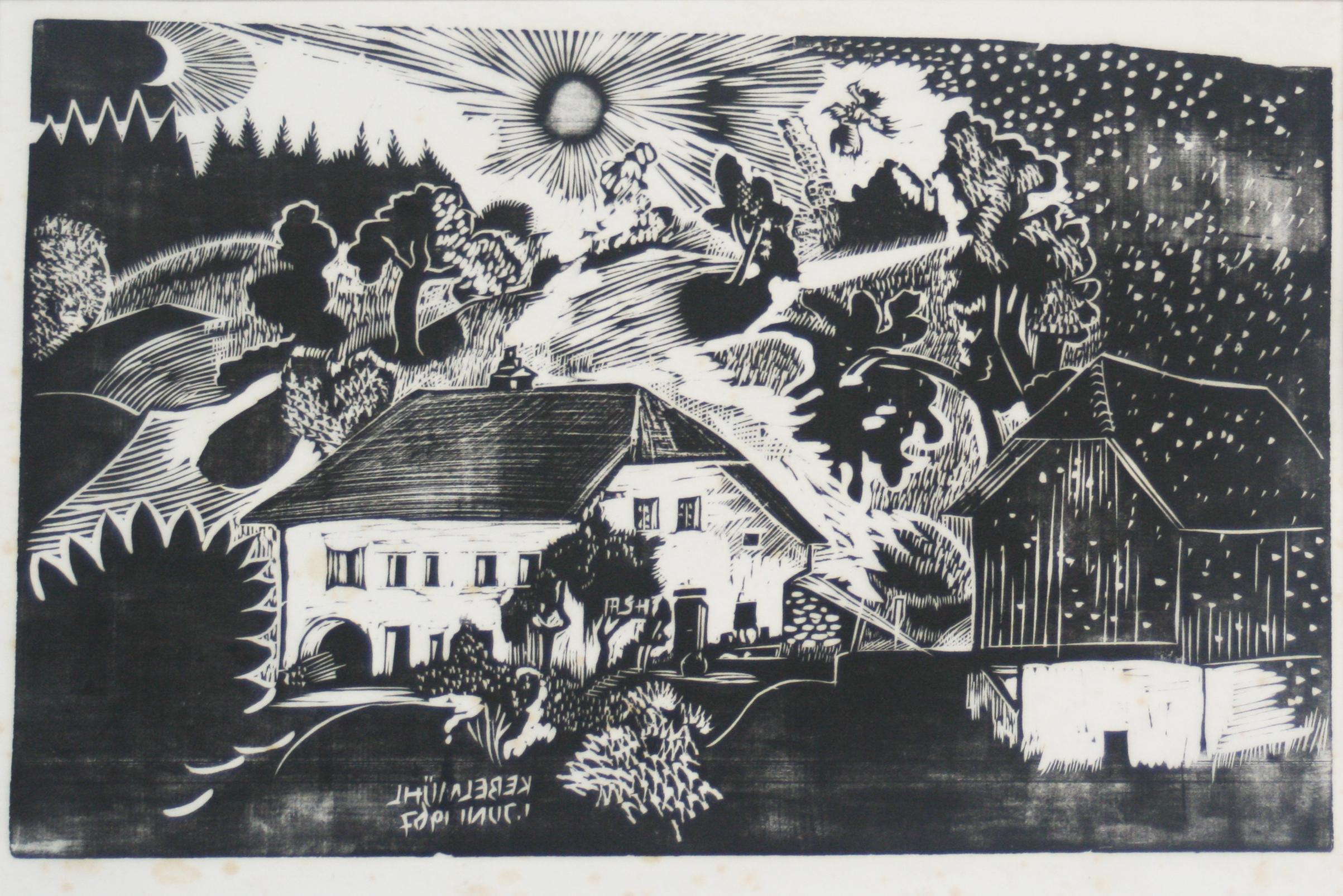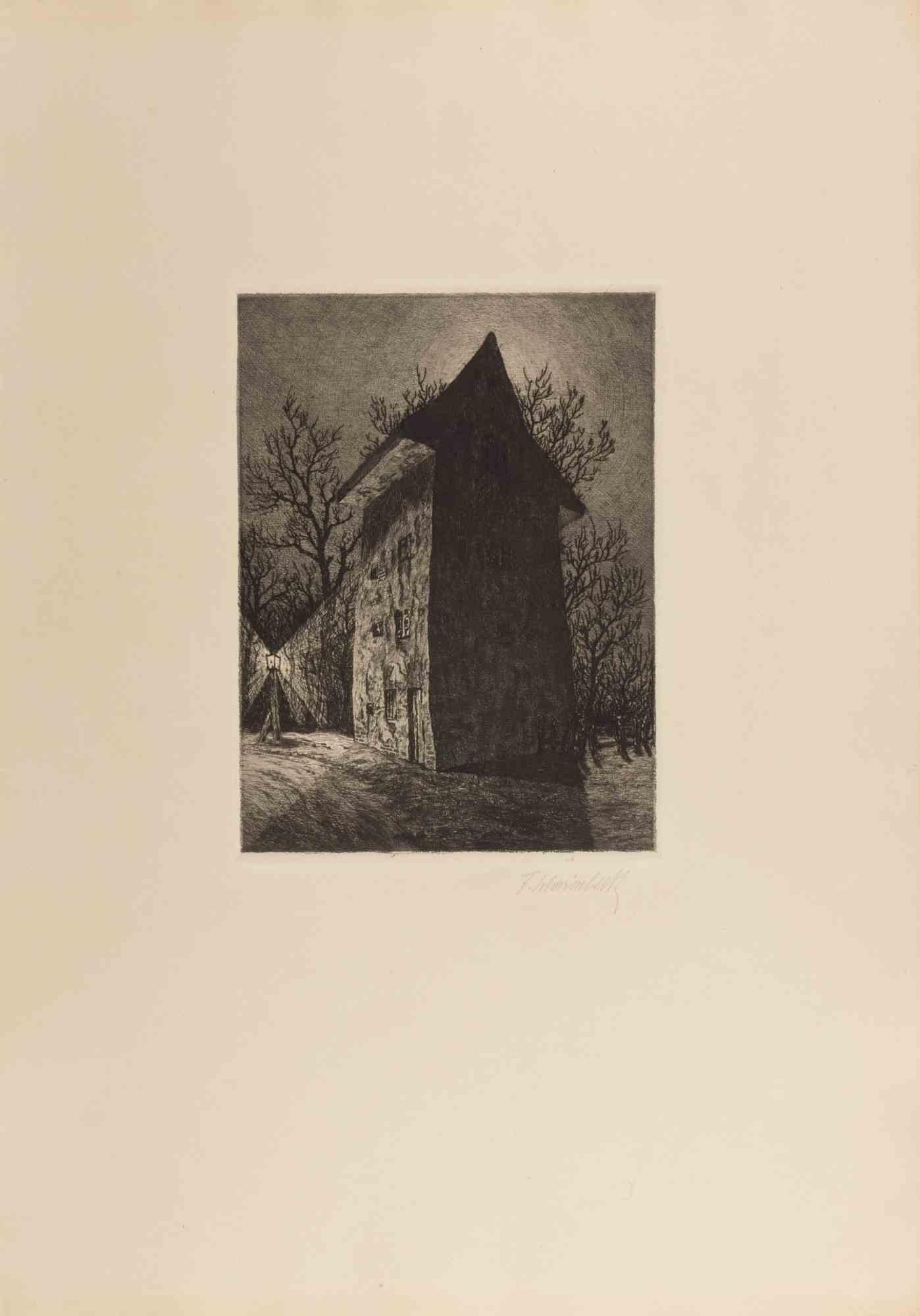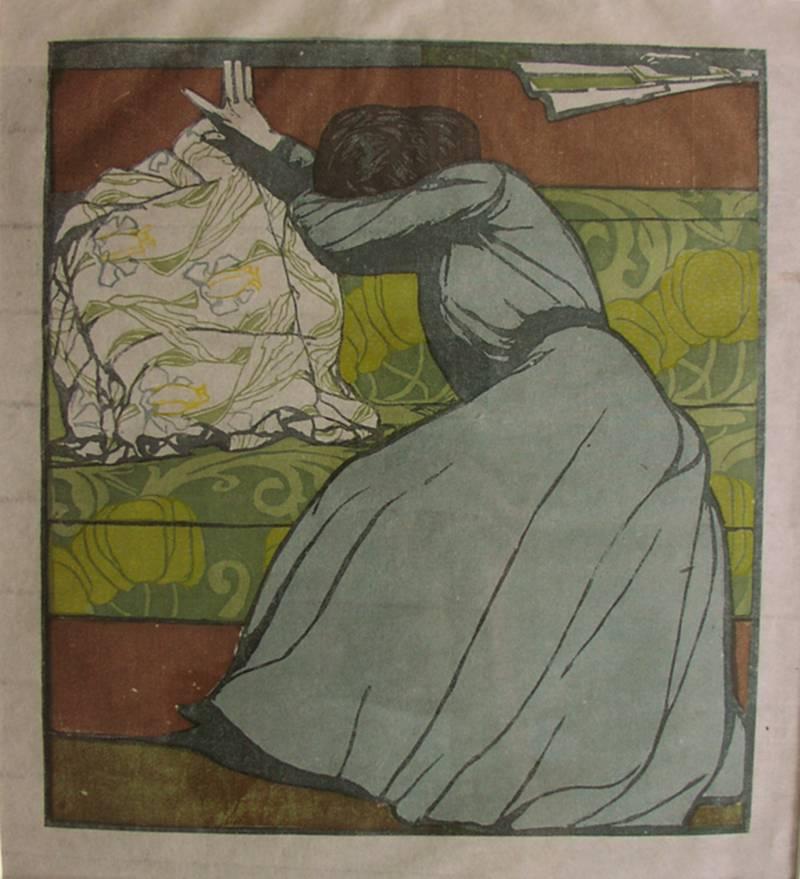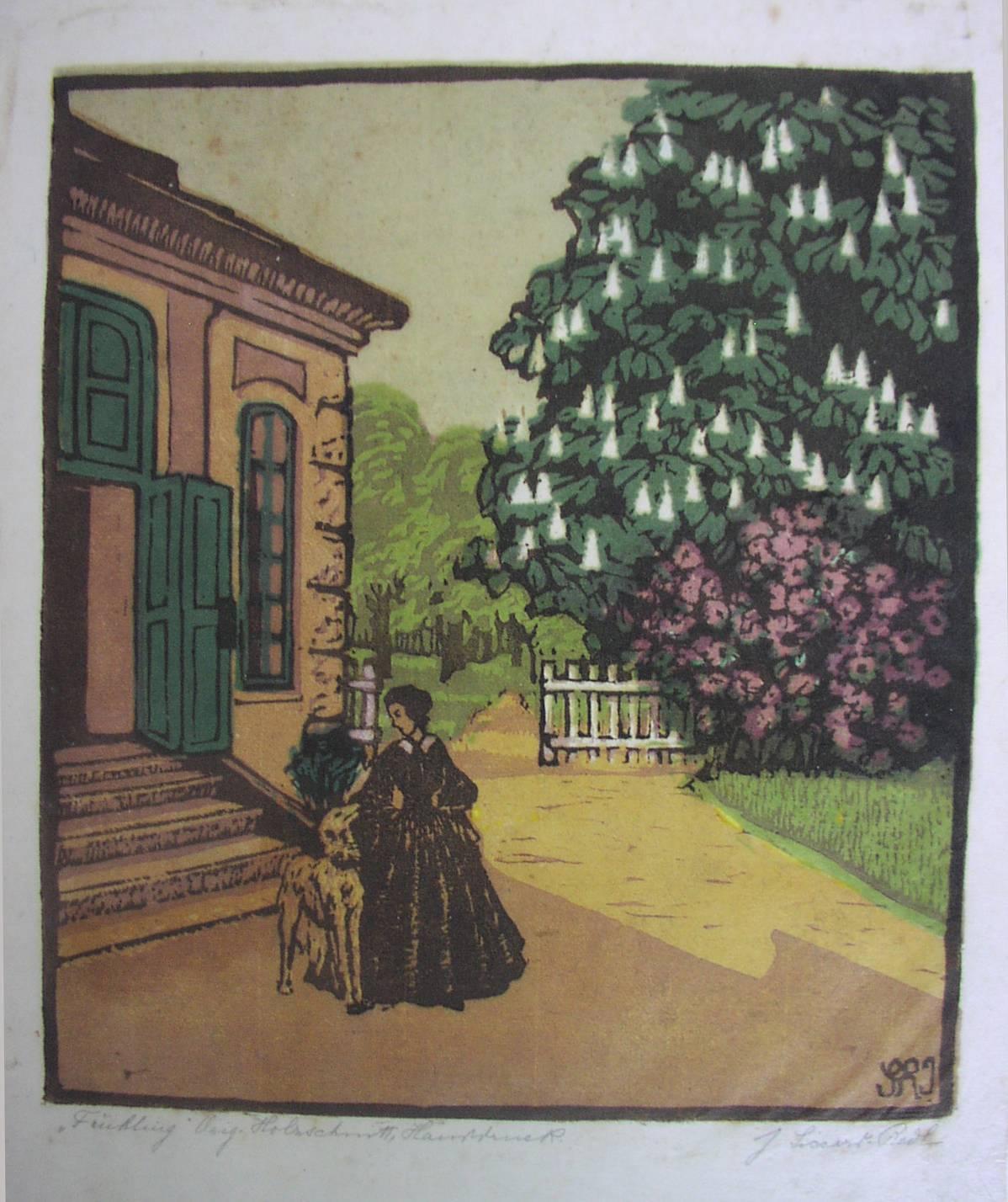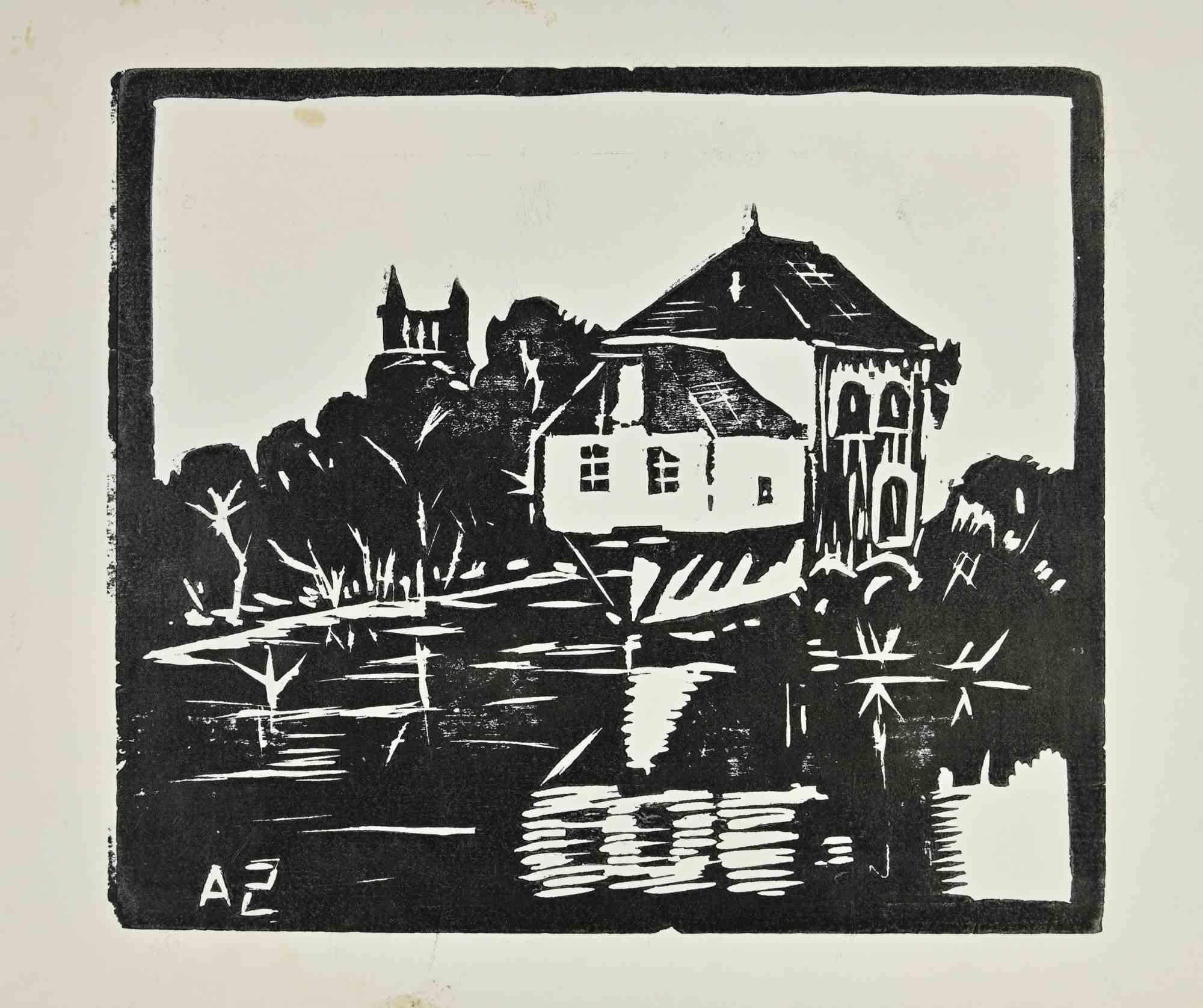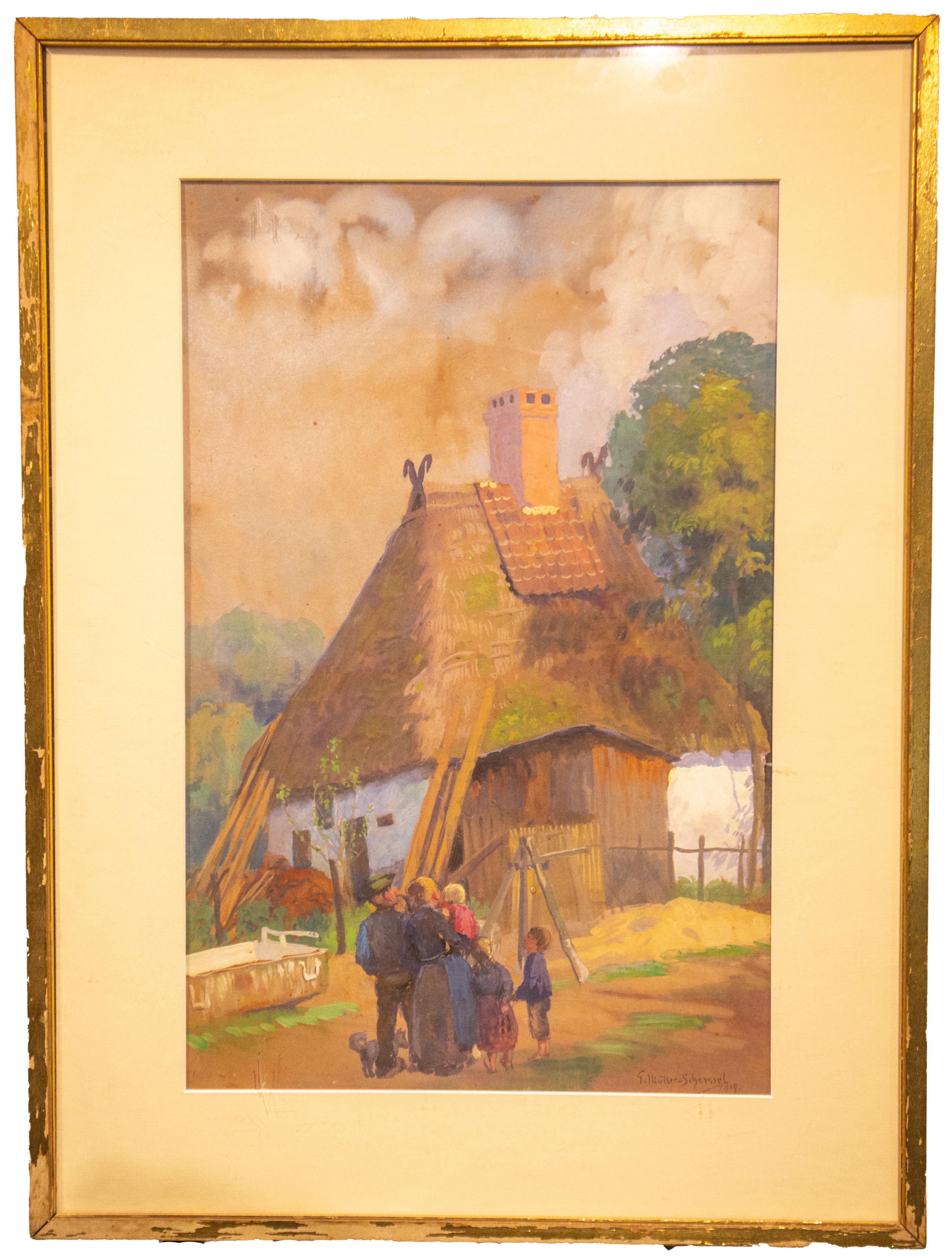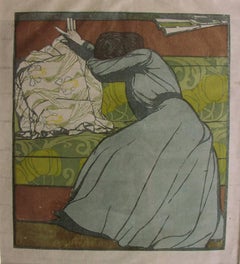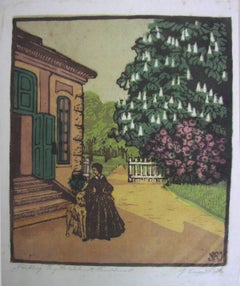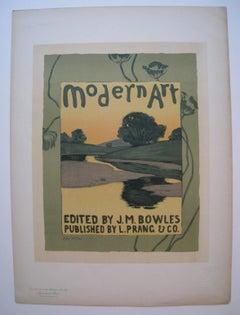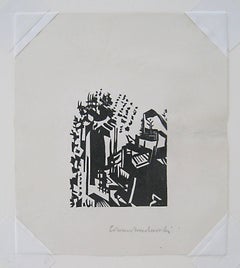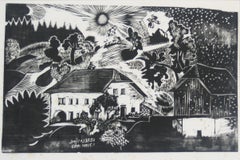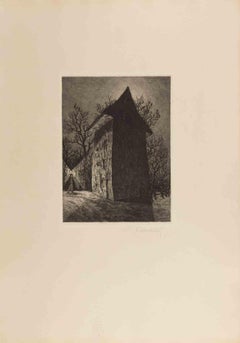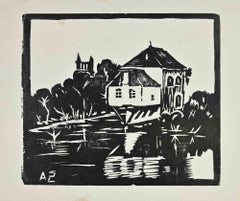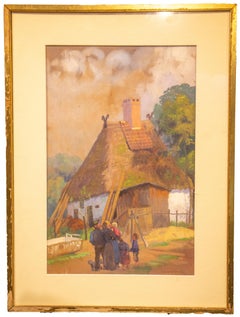Items Similar to Slowakisches Bauernhaus,
Want more images or videos?
Request additional images or videos from the seller
1 of 5
Karl SchwetzSlowakisches Bauernhaus,1911
1911
$1,500
£1,132.01
€1,295.98
CA$2,115.50
A$2,322.55
CHF 1,211.68
MX$28,106.12
NOK 15,186.53
SEK 14,309.71
DKK 9,674.14
About the Item
Schweiz, Karl. Slowakisches Bauernhaus, Ca 1911. Color linoleum cut.
Framed.
Provenance: Galerie Michael Pabst, Munich.
Noted artist, painter, illustrator, etcher, wood engraver, designer, model maker and known for his etchings and wood engravings, landscapes and watercolors.
- Creator:Karl Schwetz (1888 - 1965, Austrian)
- Creation Year:1911
- Dimensions:Height: 12 in (30.48 cm)Width: 11.5 in (29.21 cm)
- Medium:
- Movement & Style:
- Period:
- Condition:
- Gallery Location:New York, NY
- Reference Number:1stDibs: LU29221805953
About the Seller
5.0
Gold Seller
Premium sellers maintaining a 4.3+ rating and 24-hour response times
1stDibs seller since 2015
62 sales on 1stDibs
Typical response time: 11 hours
Associations
International Fine Print Dealers Association
- ShippingRetrieving quote...Shipping from: New York, NY
- Return Policy
Authenticity Guarantee
In the unlikely event there’s an issue with an item’s authenticity, contact us within 1 year for a full refund. DetailsMoney-Back Guarantee
If your item is not as described, is damaged in transit, or does not arrive, contact us within 7 days for a full refund. Details24-Hour Cancellation
You have a 24-hour grace period in which to reconsider your purchase, with no questions asked.Vetted Professional Sellers
Our world-class sellers must adhere to strict standards for service and quality, maintaining the integrity of our listings.Price-Match Guarantee
If you find that a seller listed the same item for a lower price elsewhere, we’ll match it.Trusted Global Delivery
Our best-in-class carrier network provides specialized shipping options worldwide, including custom delivery.More From This Seller
View AllDer Polster
By Max Kurzweil
Located in New York, NY
Kurzweil, Maximilian. Der Polster, 1903. Color woodcut on japon. Included as an insert in Pan. Unsigned. Framed.11 1/4 x 10 1/4. 1
Ref: Hofstatter, p. 241; Pabst, p. 154.
Maximillian Kurzweil was the co-founder of the Vienna Secession in 1897 and editor and illustrator of the influential Secessionist magazine Ver Sacrum...
Category
Early 1900s Vienna Secession Figurative Prints
Materials
Lithograph
Fruhling
By Josef Siccard-Redl
Located in New York, NY
Siccard-Redl, Josef. Fruhling, Ca 1910. Color wood engraving, Signed and titled in pencil by the artist.
Little is known of this artist other than he worked in Vienna during the
...
Category
1910s Vienna Secession Figurative Prints
Materials
Engraving
Modern Art
By Arthur Wesley Dow
Located in New York, NY
Dow, Arthur Wesley. Modern Art, 1896. Color lithograph. Plate from Maitre de L’affiches.
Arthur Wesley Dow, ( American painter, printmaker, photographer,...
Category
1890s Art Nouveau Landscape Prints
Materials
Lithograph
Scene for a Fairy Tale
By Edward Wadsworth
Located in New York, NY
WADSWORTH, Edward. Scene for a Fairy Tale, ca 1918. Woodcut printed in black on cream wove paper, Signed in pencil (which is rare for a Wadsworth rarely signed his woodcuts). Ref: Colnaghi 126. [Exhibited as Untitled Abstract]
Edward Wadsworth was an English artist, most famous for his close association with Vorticism. He painted, often in tempera, coastal views, abstracts, portraits and still-life. He was also an engraver on wood and copper. In the First World War he was involved in transferring dazzle camouflage...
Category
1910s Abstract Abstract Prints
Materials
Woodcut
Price Upon Request
Mädchen am Fenster. 1906-08.
By Oskar Kokoschka
Located in New York, NY
Mädchen am Fenster. 1906-08. Color lithograph printed on smooth card stock. Full margins. , signed by the artist in pencil, on the recto. Published by the Wiener Werkstätte, Vienna, with the printed postcard text on verso. Among Kokoschka's earliest prints were a series of 14 postcards, the current work and the following lot that he produced for the Wiener Werkstätte. Wingler/Welz 4.
Oskar Kokoschka was an Austrian artist, poet and playwright best known for his intense expressionistic portraits...
Category
Early 1900s Vienna Secession Figurative Prints
Materials
Lithograph
Chemin De Fer Rhetique
By Emile Cardinaux
Located in New York, NY
Chemin De Fer Rhetique, Grisons, Suisse. Chateau De Tarasp.
1913. Color lithograph
Cardinaux created an extensive work of different media, he illu...
Category
1910s Art Deco Landscape Prints
Materials
Lithograph
You May Also Like
Gehöft am Hügel (Kebelmühl)
Located in Wien, 9
Auguste Kronheim was born in Amsterdam in 1937. The artist makes woodcuts and drawings. She received her training in drawing from Hanns Kobinger and graduated from the Linz Federal T...
Category
1960s Modern Abstract Prints
Materials
Woodcut
Verlassene Muhle - Etching by Fritz Schwimbeck - 1918
Located in Roma, IT
Etching realized by Fritz Schwimbeck in 1918.
Edition of 125 realized in Munich on mulberry paper.
Hand signed in pencil.
Category
1910s Symbolist Figurative Prints
Materials
Etching
Houses - Etching by Arthur Sahlen - Early 20th century
Located in Roma, IT
Houses is a print realized by Arthur Sahlen (1882-1945).
Woodcut on paper.
Monogrammed on the plate on the lower.
Good condition with slight foxing.
Category
Early 20th Century Modern Landscape Prints
Materials
Etching
Charming German Country Side Home on Canvas - Ernst Müller-Scheessel Signed 1919
Located in Jacksonville, FL
Ernst Müller-Scheessel
Charming painting in gouache depicting a young family and their small children in a village
setting in Germany. Signed by the artist in the lower right corner...
Category
1910s Prints and Multiples
Materials
Paint
Altendeich, by Alexander Eckener
Located in Palm Springs, CA
Signed and titled in the plate, and titled in pencil at bottom of sheet, as was common with Eckener prints. Very nice impression of this image of a farm at the edge of a canal in Altendeich, Germany circa 1905. Shee in in excellent condition.
Eckener studied at the Academy of Fine Arts, Munich, from 1888 to 1892. After graduating, he returned to his home town and became part of the Ekensund Artists' Colony. In 1899, he went to Stuttgart and was accepted by the State Academy of Fine Arts. There, he was a master student of Leopold Graf von Kalckreuth. After 1908, he taught at that Academy himself and was named a Professor in 1912.
His older brother, Hugo Eckener, commanded the airship Graf Zeppelin on its first flight...
Category
Early 20th Century Landscape Prints
Materials
Etching
$150 Sale Price
25% Off
Diex, Carinthia, Austria
By Josef Eidenberger
Located in San Francisco, CA
This artwork titled "Diex, Carinthia, Austria" c.1950 is a color etching on Wove paper by noted Austrian artist Josef Eidenberger, 1899-1991. It is hand signed in pencil by the artist. Published/printed by Graphics International, Austria. The plate mark (image) size is 13.75 x 10.75 inches, sheet size is 20.5 x 16.15 inches. It is in excellent condition, has never been framed.
About the artist.
Josef Eidenberger was born in 1899 in the little town of Goisern, Austria,he began his artistic career as a landscape painter. In 1923 he enrolled in the famed Graphic Academy of Art in Vienna and studied under Professor Alfred Cossman.
His recognized talent brought him many commissions from city officials and members of the business communities throughout Europe, especially in Austria and Germany. In 1973 after visiting the United States for the first time he created a series of California etchings...
Category
Mid-20th Century Realist Figurative Prints
Materials
Etching
